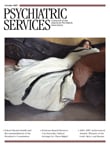Most readers of Psychiatric Services are familiar with the notorious Tuskegee Syphilis Study, where 399 African American men with syphilis were studied by the United States Public Health Service to observe the course of the disease. Treatment for study participants was not only withheld but actively suppressed by the experimental team. The study began in the 1930s and continued until the early 1970s, when Peter Buxton, a young Polish immigrant who worked as a venereal disease interviewer for the Public Health Service, publicly blew the whistle after he was unable to prevail upon the Public Health Service to stop the experiment.
As shocking as that incident was, Harriet Washington amply documents how it was but one of many medical abuses committed against African Americans throughout United States history and probably was not the worst. In fact, Washington describes a multifaceted pattern of racist and unethical medical practice, largely unknown to most people in the United States—particularly those who have not experienced racial oppression—with devastating consequences for the well-being of millions of African-American citizens. This practice led to a health "chasm" between blacks and whites and eroded the trust of many African Americans in the medical system to this day.
Washington, a journalist with a strong background in medical ethics, presents a thorough and compelling case and an encyclopedic historical catalogue of medical mistreatment, ethical lapses, misguided and harmful research, eugenic abominations, lethal experiments, discrimination, and neglect of essential medical needs. Washington starts at the beginning, which is important for understanding the evolution of "medical apartheid." She traces the collusion of slaveholders with doctors, some of whom were also slaveholders, to uphold economic interests while placing patients at risk and submitting them to painful, sadistic, risky experiments, such as untested vaccinations, intentional burns, and exposure to lethal levels of heat.
African captives were displayed in zoos and museums. We learn of sterilization of black mothers, injection of radioactive substances into uninformed and unaware research subjects, seduction and trickery of parents so that they allowed their children to participate in high-risk experiments and invasive surgery, and even release of dengue-, malaria-, and yellow-fever-bearing mosquitoes in African-American neighborhoods as part of an experiment by the Army Chemical Corps to test the efficacy of disease-bearing mosquitoes as a form of biological warfare. Even death did not bring respite; black cadavers were stolen from cemeteries to be used in white medical schools.
Washington thoroughly documents her concerns and has conducted impressive research. However, she goes beyond merely presenting the facts. She ties the medical malpractices into the larger issue of racism that has been a constant fiber in the thread of the American republic. Citing quotes from some of the book's worst offenders and linking them to prevailing ideologies and beliefs of the times, Washington shows how these abhorrent practices made sense to the people who promulgated them. She also illustrates a confluence of culpability between the government, the medical establishment, and the mainstream media, who created a legitimizing discourse enshrining scientific method and blaming recalcitrant victims for resisting the treatment because of suspicion and superstition. All of this has led to major mistrust of medicine and medical practitioners among many in the African-American community, further exacerbating the health chasm between races.
Washington's tone is at times understandably angry, yet she is also measured and thorough in her approach. She marshals an impressive array of evidence, and by use of quotes, the voices of perpetrators and victims speak for themselves. She is very cautious about attributing everything to racism, at times bending over backward to include other factors, and yet the impact of racism on the chain of misdeeds is indelibly inscribed. Although the book concerns itself with the domain of health and medicine, it illustrates the pattern of how institutions operate in many areas.
This landmark book is essential reading for all who work in medical, public health, and related professions and settings. Racism is still operating today to create higher health risks, less access to services, and lower-quality medical care for many people of color. This problem has historical, social, political, ideological, and psychological roots that influence all professions and service delivery systems. Medical Apartheid helps to shine a light of clarity and understanding into the dark shadows and recesses that have obscured our ability to grasp our past and to chart a socially and medically just future.

